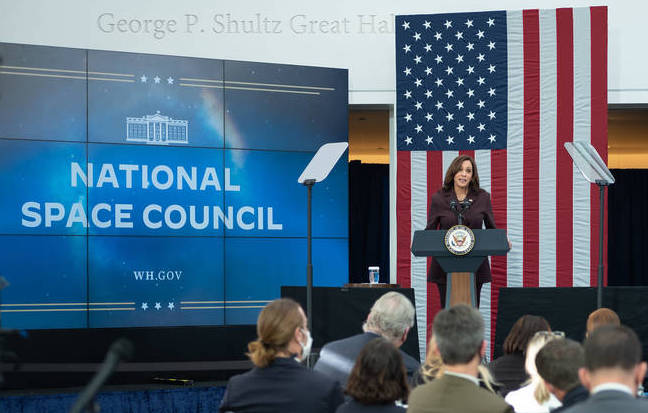
November 16th, 2022 |

Prepared Remarks: Steven Wolfe, President, Beyond Earth Institute
Thank you. I am Steve Wolfe, President and Co-founder of the Beyond Earth Institute, a space policy think tank whose stated mission is to establish and sustain a legal and policy framework that will enable the creation of economically vibrant communities Beyond Earth.
The Novel Space Capability I suggest to you today is not a technology but a new space policy orientation and focus.
The United States, its allies, and global competitors are ramping up for increasing human presence in space, both government and the private sector.
But, as you know, outside of the space community bubble, public commentary persistently questions why we spend taxpayer dollars to send people to space, and now back to the Moon.
Our typical response, though inspiring to some, tends to fall flat with the public at large.
We need to be bolder, not in terms of how much we spend, but in terms of the vision, we express for the future.

What will change the current paradigm is a U.S.-led acceptance of and acknowledgment that human civilization will one day expand beyond Earth’s atmosphere.
As was evident at our recent gathering last month in Washington, DC of key thought-leaders from government, industry and academia, there is a rapidly growing space ecosystem laying the groundwork for such migration.
To this end, I submit the recommendations contained in the Beyond Earth Institute report titled “Emerging Space Industrial Ecosystem Leading to Eventual Beyond Earth Migration.” In the reports, we recommend that the Administration should, by Executive Order, establish a Beyond Earth Working Group as an interagency body directed to “promote, facilitate and publicly promulgate” – not “study” – the policies, incentives, investments, laws, and regulations essential to expedite the migration of humankind beyond Earth.”
The drafters of the report Courtney Stadd and Robert Brumley, both of whom are prominent long-time advocates of effective commercial space policy in government and the private sector.
The essence of this recommendation is a private sector-led and all-of-government-supported approach to opening the resources of the solar system for the benefit of all humanity.
I know that suggesting a space migration policy orientation at a time when we hope to simply return people to the Moon for the first time in 50 years can be hard to grasp.
But I am reminded of a moment in the early 1960s when John F. Kennedy emphatically stated ‘We choose to go to the Moon.’ At that time, there was no certainty of success, the engineers weren’t sure if we could make it, and we might easily have failed. Yet we still made that choice. And that is what I suggest we do today. We can choose a future of human space migration, with all the uncertainty and all the challenges that that implies in this moment. And it is that choice that will inspire generations and, ultimately, help to bring that future into being.
Thank you again for this opportunity to speak and for your consideration of this proposal.